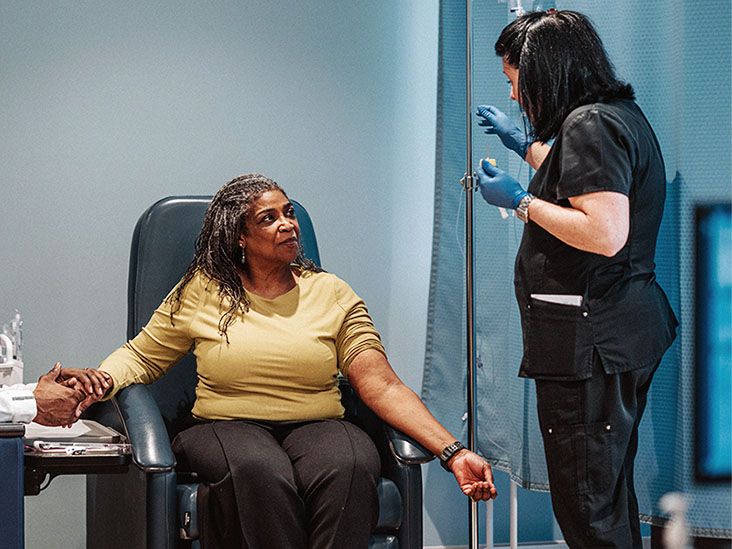Hey there! If you're reading this, chances are you're getting close to that magic 65-year-old mark, or maybe you're helping someone who is. Either way, welcome to the world of Medicare in Massachusetts and don't worry, we're going to walk through this together, step by step.
I know what you're thinking: "Another confusing insurance topic? Great." Trust me, I've been there too. When my mom first needed to understand her options, I felt like I was trying to decode ancient hieroglyphics. But here's the thing once you break it down into manageable pieces, Medicare doesn't have to be scary. In fact, it can actually be pretty straightforward when you know what you're looking for.
Let's start with the basics. Medicare in Massachusetts works just like it does everywhere else in the country, but our beautiful state does have a few special touches that make things a bit different and honestly, often better for residents.
Your Medicare Options Explained
So what are your choices when it comes to Medicare here in the Bay State? Well, you've basically got three main paths, and each one has its own personality, just like us humans do.
Original Medicare Massachusetts Style
Think of Original Medicare as the classic vanilla ice cream of healthcare coverage reliable, widely accepted, and familiar. It's made up of two parts: Part A (hospital insurance) and Part B (medical insurance). This is the standard that the federal government offers to everyone, and Massachusetts follows all those same rules.
What makes Original Medicare appealing is its flexibility. You can see pretty much any doctor or hospital that accepts Medicare, no networks to worry about. It's like having a golden ticket that works almost anywhere in the country. Pretty cool, right?
But and this is a big but Original Medicare doesn't cover prescription drugs automatically. That's where Part D comes in, which we'll talk about in a bit. Also, you might notice some gaps in coverage that could leave you paying out of pocket for things like deductibles and coinsurance.
Here's something Massachusetts does particularly well: our state laws protect you from something called balance billing when you're seeing doctors who accept Medicare. That means if your doctor agrees to Medicare's payment terms, they can't turn around and bill you for the difference. Sweet relief, am I right?
Medicare Advantage Massachusetts Offers
Now, if Original Medicare feels a bit too basic for your taste, Medicare Advantage might be more your style. Think of these plans as the premium toppings on your healthcare sundae same vanilla base, but with extra goodies mixed in.
These plans are offered by private insurance companies, but they still have to cover everything that Original Medicare does (except hospice care, which stays with Part A). The bonus? Many of them throw in extras like prescription drug coverage, dental, vision, hearing, and sometimes even gym memberships. I'm not kidding some folks here in Massachusetts actually get their gym memberships paid for through their Medicare Advantage plan!
Let me tell you about Sarah, a lovely retiree I met at a coffee shop in Cambridge. She was telling me how switching to a Medicare Advantage plan saved her both money and hassle. Not only did her monthly premium drop to zero, but she also got access to SilverSneakers which gave her free access to fitness centers all over town. She was practically bouncing with excitement about her new yoga classes!
The trade-off with Medicare Advantage is that you usually have to stay within a network of doctors and hospitals. It's like joining a club you get more perks, but there are some rules about where you can go. For many people, especially those who don't mind having a primary care doctor coordinate their care, this works out really well.
Medigap Plans Massachusetts Style
Here's where Massachusetts really shows its caring side. Medigap insurance also called Medicare supplement insurance helps cover those out-of-pocket costs that Original Medicare doesn't pay. But our state has gone above and beyond to make sure residents have great options.
We have our own standardized Medigap plans here: Core, Supplement Plan 1, and Supplement Plan 1A. These aren't just copies of what other states offer they include special benefits that Massachusetts fought for, like coverage for preventive services like Pap smears and mammograms, even if Medicare doesn't cover them completely.
I think of Medigap like having a trusty umbrella you hope you don't need it, but when the medical bills start pouring down, you're so glad you've got it. These plans can really protect you from unexpected healthcare costs, which becomes more important as we age.
| Feature | Original Medicare | Medicare Advantage | Medigap |
|---|---|---|---|
| Monthly premium | Yes (Part B) | Often $0 | Varies |
| Doctor choice | Wide open | Network-based | Yes |
| Prescription coverage | Optional (Part D) | Usually included | No |
| Out-of-pocket costs | High potential | Cap possible | Lowers gaps |
| Annual enrollment periods | JanMar | JanMar | Anytime |
Enrolling Made Simple
Timing really is everything when it comes to Medicare, and getting it right can save you a lot of money and stress down the road.
When Should You Sign Up?
You can start thinking about Medicare at age 64, which gives you a full year to get familiar with your options before your coverage actually begins. Your Initial Enrollment Period (IEP) is a seven-month window three months before your 65th birthday month, your birthday month, and three months after.
Let me ask you something did you know that if you miss this window and don't have coverage through a current employer, you could face late enrollment penalties? These can follow you for as long as you have Medicare, so it's definitely worth putting a reminder on your calendar.
But here's a Massachusetts bonus: if you do miss your IEP, our state has programs that might be able to help reduce those penalties or even cover some of your costs. According to the Massachusetts government information, there are several assistance programs available for those who qualify based on income.
And if life throws you a curveball like losing employer coverage or moving to a new area you might qualify for a Special Enrollment Period. The key is staying aware of what's happening in your life and how it might affect your Medicare timeline.
Common Mistakes to Avoid
Over the years, I've seen plenty of folks make the same Medicare missteps, and honestly, most of them are completely avoidable. Let's chat about a few of the biggies:
First up: waiting until the last minute. I know, I know we've all been there with procrastination. But Medicare decisions deserve more time and attention than that. Give yourself at least a few weeks to research your options, compare costs, and make sure your preferred doctors are included in any plan networks you're considering.
Second: not checking provider networks carefully enough. I can't tell you how many times someone has fallen in love with a Medicare Advantage plan's low premium, only to discover their beloved cardiologist isn't in the network. Double-checking this stuff might not be glamorous, but it's essential.
Third: going it alone when you don't have to. Massachusetts has some fantastic free resources for Medicare guidance, and I'll tell you about those in a bit. There's no shame in asking for help when you're making decisions that will affect your health and wallet for years to come.
Understanding Costs and Getting Help
Money matters can make even the most confident person's eyes glaze over, but understanding Medicare costs is crucial for making smart decisions.
What Will You Actually Pay?
Let's break down the numbers without getting too wonky about it. Most people don't pay a premium for Part A that's hospital coverage because they've paid into the system through their payroll taxes over the years. Score!
Part B medical insurance typically costs around $174 per month, though this can be higher depending on your income. If you're still working and have employer coverage, you might choose to delay Part B, but that's a conversation worth having with a benefits counselor.
Medicare Advantage plans can range from zero premium (yes, really!) up to whatever the insurance company decides to charge. The catch is that zero-premium plans often have higher out-of-pocket costs when you actually need care, so it's all about finding the right balance for your situation.
Medigap plans typically cost between $100 and $200 per month, but again, this varies widely based on your age, health, and where you live. Want to see what's available in your area? The Medicare.gov website has a great tool where you can enter your zip code and get real pricing information.
Help for Those Who Need It
Here's something that fills my heart with joy: Massachusetts really cares about making sure everyone can afford the healthcare they need. We have several programs designed to help with Medicare costs, and they're genuinely helpful.
The Medicare Savings Programs (MSPs) can help pay your Part B premium and even cover deductibles and coinsurance. These aren't tiny programs either in 2024, the income limits were expanded significantly, which means more people qualify than ever before.
There's also Extra Help a federal program that can save you hundreds of dollars each year on prescription drug costs. I've seen this make a real difference in people's lives, especially those who take multiple medications.
What's truly special about Massachusetts is our commitment to making these programs accessible. We don't just have the help available we actively work to connect people with the assistance they need.
Finding the Right Doctors
Your healthcare is only as good as the doctors you see, so let's talk about how to make sure you're covered.
Doctor Availability in Massachusetts
The good news? Most doctors in Massachusetts accept Medicare. We have a relatively high rate of Medicare participation, which means you're likely to find that your current doctors are already on board.
But don't just take my word for it verify before you commit to a plan. The Medicare Care Compare tool is incredibly useful for checking whether your preferred doctors participate in specific plans. I always encourage people to print out a list of their must-have doctors before they even start looking at plans.
One thing I love about Massachusetts is how supportive our state laws are for Medicare beneficiaries. Remember that balance billing protection I mentioned earlier? That's just one example of how our state makes healthcare more affordable and accessible.
If you're looking at Medicare Advantage plans, pay extra attention to which specialists are included in the network. Some plans have particularly strong relationships with certain hospitals or medical groups, which could be a huge plus if you have ongoing health conditions.
Special Considerations for Massachusetts Residents
Massachusetts has always been a leader when it comes to healthcare innovation, and Medicare is no exception. We have some unique programs and resources that you won't find in other states.
One Care Massachusetts Program
If you're between 21 and 64 and have both Medicare and MassHealth (our state's Medicaid program) but no other insurance, you might qualify for One Care. This program helps coordinate your care between both systems, which can be incredibly valuable for people with complex health needs.
What I find fascinating about One Care is how it recognizes that healthcare works best when it's coordinated. Instead of having different parts of your care managed separately, One Care brings everything together under one umbrella. It's like having a personal healthcare concierge, but one that actually understands the complexities of navigating both Medicare and MassHealth.
Getting Free Help in Massachusetts
Here's something I want to make sure you know about: you don't have to figure all of this out by yourself. Massachusetts has some of the best free Medicare counseling programs in the country.
The SHINE Program (Serving the Health Insurance Needs of Everyone) offers free, unbiased Medicare counseling from trained volunteers. These folks know their stuff, and they genuinely want to help you make informed decisions. You can find SHINE program information through Massachusetts government resources.
I've seen firsthand how much these counselors can help. They don't work for insurance companies, they don't get commissions, and they don't have any agenda beyond helping you understand your options. That kind of pure, helpful service is pretty special.
Making Your Decision with Confidence
By now, you're probably wondering how to put all this information together to make the right choice for your situation. And that's exactly the right question to be asking.
The first thing I always recommend is taking a deep breath. This is a big decision, but it's also one that lots of people have successfully navigated before you. You've got this.
Next, think about what matters most to you. Do you value having the freedom to see any doctor? That might point toward Original Medicare with a Medigap plan. Are you looking for the most comprehensive coverage with potentially low monthly costs? Medicare Advantage might be your ticket. Do you have predictable health needs and want to keep things simple? Original Medicare alone could work perfectly.
Consider sitting down with a trusted friend or family member to go through your options. Sometimes an outside perspective can help you see things you might have missed. And seriously, don't skip those free counseling sessions the people who offer them really do want to help.
Remember, Medicare decisions aren't set in stone. While it's good to make thoughtful choices, you also have opportunities each year to adjust your coverage if your needs change. Life happens, and your Medicare plan can adapt with you.
Your Medicare Journey Starts Here
As we wrap up this conversation about Medicare in Massachusetts, I want you to know that feeling overwhelmed is completely normal. Healthcare decisions are never simple, and Medicare is no exception. But you're also not alone in this journey.
Massachusetts has a long tradition of caring for our residents, and that extends to how we approach Medicare. From our protective state laws to our robust assistance programs, we've built a system that genuinely tries to help people make informed, affordable choices.
Whether you end up choosing Original Medicare with a supplement, a Medicare Advantage plan that feels like it was designed just for you, or you take advantage of our state's financial assistance programs, remember that the goal is finding something that works for your life, your health, and your budget.
Take your time, ask questions, and don't be afraid to say "I don't understand" when something doesn't make sense. The right Medicare plan should make your life easier, not more complicated. And most importantly, remember that taking care of your health is one of the most important gifts you can give yourself and Massachusetts is here to help make that gift as accessible as possible.
You've got this, and we're all rooting for you to find exactly the coverage you need. Here's to your health and happiness!
FAQs
What are the main types of Medicare in Massachusetts?
Medicare in Massachusetts includes Original Medicare, Medicare Advantage plans, and Medigap (supplement) plans, each offering different levels of coverage and flexibility.
When should I enroll in Medicare in Massachusetts?
Your Initial Enrollment Period begins three months before you turn 65 and ends three months after. It’s best to sign up on time to avoid penalties.
Does Massachusetts offer extra help for Medicare costs?
Yes, Massachusetts provides Medicare Savings Programs and Extra Help for those who qualify based on income to assist with premiums and prescription costs.
Can I keep my current doctor with Medicare in Massachusetts?
Most doctors in Massachusetts accept Medicare. Always verify that your preferred doctors are in-network if you choose a Medicare Advantage plan.
Are there free resources to help me choose a Medicare plan in MA?
Yes, the SHINE Program offers free, unbiased Medicare counseling to help Massachusetts residents make informed decisions.
Disclaimer: This article is for informational purposes only and does not constitute medical advice. Always consult with a healthcare professional before starting any new treatment regimen.
Related Coverage
Psychedelic waters remain federally illegal, but some states allow limited use. Learn about the complex legal status, safety concerns, and tips for responsible use....
Find the right Nevada Medicare plans with ease. Compare options and enroll in Medicare coverage tailored to your needs today....
Avoidable nursing home hospitalizations harm frail elders, disrupt care, and strain families. These preventable ER trips can be reduced with better on-site support and clear care plans....
Does Medicare cover bathroom remodel costs? Find out what's included, what's not, and how to get help with your Medicare bathroom remodel....
Medicare Plan G explained: monthly premiums, coverage gaps it fills, pros & cons, and who benefits most—all in plain terms....
Get the facts on IV infusions Medicare coverage, including what's covered, out-of-pocket costs, and how to find approved providers....
Find out if Medicare electric bikes are covered, what alternatives exist, and how seniors can still get the mobility they need....
Get details on 2025 AARP Medicare Part D plans, coverage changes, and how to save on prescription drugs with smart plan choices....
Navigate Medicare in Idaho with confidence. Compare plans, avoid mistakes, and choose smart coverage that fits your health and budget....
Choosing between walkers vs canes depends on your balance, strength, and daily needs. Find the right mobility aid for you....









